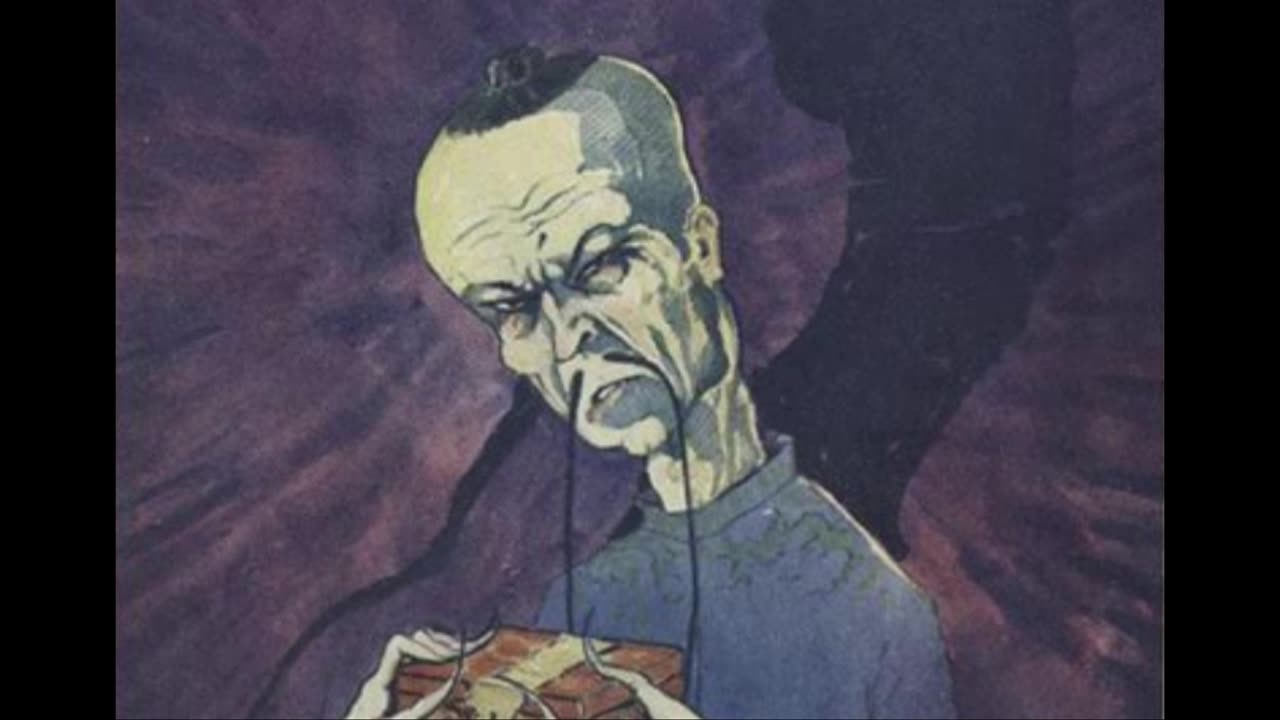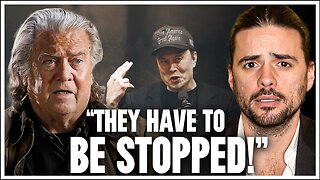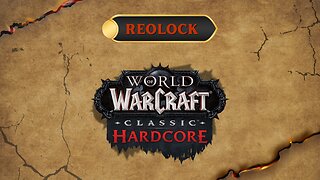Premium Only Content

Shadow Forms: A Collection of Occult Stories by: Manly P. Hall (1930)
The stories in this book not only serve as entertaining narratives but also embody profound occult teachings, each offering a unique moral that aligns with Manly P. Hall's esoteric philosophy. The collection stands as a reflection of Hall’s broad knowledge of mystical traditions, combining fiction with spiritual lessons that resonate with seekers of wisdom.
Here is a breakdown of each story:
1. Black Hat Sorcery
This story delves into the dark arts and explores the destructive power of selfish magic. The protagonist encounters a practitioner of black magic, uncovering the consequences of misusing spiritual forces for personal gain. The tale serves as a cautionary narrative about the karmic repercussions of unethical actions.
Moral of the Story: The misuse of spiritual powers for personal benefit leads to self-destruction, emphasizing the importance of moral integrity in esoteric practices.
2. The Witch Doctor
Set in a remote village, this story examines the healing practices and mystical knowledge of a local witch doctor. It explores the tension between traditional spiritual healing and the encroaching influence of modern medicine. The tale reflects on the value of ancient wisdom and the spiritual dimension of healing.
Moral of the Story: True healing involves the spiritual plane as much as the physical, and modern approaches often overlook the importance of holistic well-being.
3. The Teapot of Mandarin Wong
This story blends Eastern philosophy with the mystical, following the journey of a magical teapot owned by Mandarin Wong. The teapot possesses the ability to manifest desires, but with unintended consequences. This narrative explores the dangers of material greed and the misunderstandings around magical objects.
Moral of the Story: The pursuit of material wealth and desires without spiritual understanding leads to unforeseen consequences, underscoring the need for inner clarity.
4. Silver Souls
A deeply spiritual story, Silver Souls reflects on the idea of reincarnation and the continuity of the soul. The narrative follows several characters as they navigate different lifetimes, bound by karmic ties and spiritual lessons that persist across their incarnations.
Moral of the Story: The soul's journey transcends lifetimes, and spiritual growth comes through understanding and learning from the karmic bonds that link us across lifetimes.
5. Third Eye
This story focuses on the mystical powers of the Third Eye, a symbol of spiritual awakening and clairvoyant abilities. A seeker of esoteric knowledge learns the power of intuition and inner vision, but is warned of the dangers of using these abilities for the wrong reasons.
Moral of the Story: The development of inner sight should be pursued with caution and ethical intent, as misuse of spiritual insight can lead to chaos.
6. The Spirit of the Snows
Set in a mountainous region, this story weaves together themes of nature mysticism and spiritual purity. The protagonist encounters an ethereal presence— the Spirit of the Snows—that teaches him about the sacredness of nature and the importance of spiritual discipline.
Moral of the Story: Nature is a profound teacher, and spiritual lessons are learned by attuning to the sacred forces present in the natural world.
7. The Lota of the Great God Shiva
This story explores Hindu mysticism, centering on a sacred vessel (Lota) blessed by the God Shiva. The protagonist’s journey through this spiritual quest emphasizes the themes of surrender to divine will and the acquisition of spiritual powers through humility.
Moral of the Story: Spiritual enlightenment is achieved through surrender to divine forces and the cultivation of inner purity.
8. The Temple of Sin
This tale explores the idea of spiritual redemption within the context of a mysterious temple. The protagonist must confront his own inner demons and the consequences of past misdeeds, symbolizing the universal process of spiritual atonement.
Moral of the Story: True redemption is achieved through self-awareness, moral accountability, and facing the shadows within.
9. The Dance of the Veils
A mystical story about unveiling the hidden layers of spiritual knowledge, The Dance of the Veils uses the metaphor of a dance to illustrate the gradual revelation of occult wisdom. Each veil represents an aspect of illusion that must be transcended to reach the truth.
Moral of the Story: Spiritual awakening is a gradual process of lifting the veils of illusion, and true wisdom is revealed only to those with patience and inner discipline.
10. The Emerald Tablet
Based on Hermetic teachings, this story draws from the famous Emerald Tablet and the principle of "As Above, So Below." It explores how the microcosm reflects the macrocosm and teaches the protagonist the importance of balance between the spiritual and physical realms.
Moral of the Story: The universal laws governing the cosmos are mirrored in the individual, and spiritual wisdom requires understanding this balance.
11. Your God and My God
This story reflects on the unity of religions and the shared spiritual truths that transcend dogma. Through encounters with different belief systems, the characters come to understand the commonality of divine principles across cultures and religions.
Moral of the Story: All paths lead to the same spiritual truth, and true wisdom comes from recognizing the unity of all faiths.
12. The Cave of the Apes
A unique story that explores the primal aspects of human consciousness and the link between humanity and its animalistic origins. The protagonist undergoes a transformative experience in the cave, confronting the dual nature of human beings—both animalistic and divine.
Moral of the Story: Spiritual evolution requires embracing and transcending the lower instincts to realize our divine potential.
About the Author:
Manly P. Hall was one of the most influential figures in the 20th century in the fields of esotericism, mysticism, and occult studies. His intellectual contributions to ancient wisdom and spiritual traditions are best exemplified by his magnum opus, The Secret Teachings of All Ages. Hall's works continue to be cornerstones of modern occult scholarship, and his writings have had a significant impact on those exploring Freemasonry, Hermeticism, and various mystical traditions.
Early Life and Background:
Born in Peterborough, Ontario, Canada on March 18, 1901, Hall moved to Los Angeles, California, in 1919. There, he encountered emerging spiritual movements that shaped his lifelong passion for metaphysical exploration. By his early twenties, Hall became a prolific writer and lecturer, rapidly gaining recognition for his depth of knowledge on esoteric and occult subjects.
Key Works:
1. The Secret Teachings of All Ages (1928):
Hall’s most famous work, an extensive compendium of ancient and mystical traditions, covers alchemy, astrology, Hermeticism, Rosicrucianism, Kabbalah, and Freemasonry. It remains an essential reference for students of the occult.
2. The Lost Keys of Freemasonry (1923):
This book delves into the symbolism and spiritual aspects of Freemasonry, portraying the craft as a journey toward personal enlightenment.
3. The Secret Destiny of America (1944):
Hall explores the esoteric foundation of the United States, suggesting that the country was destined to fulfill a role in advancing universal enlightenment, influenced by Masonic and Rosicrucian ideals.
4. The Initiates of the Flame (1922):
One of Hall’s earliest works, discussing the symbolism of fire in alchemical and spiritual traditions.
5. The Ways of the Lonely Ones: A Collection of Mystical Allegories (1945):
A collection of allegories presenting spiritual teachings through symbolic narratives, emphasizing personal transformation.
6. Lectures and Essays:
Throughout his life, Hall authored more than 150 books and delivered over 8,000 lectures on metaphysics, philosophy, and mysticism.
Degrees, Orders, and Affiliations:
1. 33rd Degree Scottish Rite Freemason (1973) – Honorary degree awarded in recognition of his contributions to Masonic philosophy.
2. Initiated into Freemasonry at Jewel Lodge No. 374 in San Francisco (1954).
3. Strongly associated with Rosicrucianism, though no formal initiation into a specific order is confirmed.
4. Deeply influenced by Hermeticism, particularly the teachings of Hermes Trismegistus.
5. Founder of the Philosophical Research Society (PRS) in 1934, dedicated to the study of esotericism, philosophy, and religion.
Philosophical Contributions and Legacy:
Manly P. Hall's approach to esotericism was inclusive, drawing from a wide array of mystical and spiritual traditions. He believed in the perennial philosophy, which posits that all spiritual traditions share a common origin. Hall’s goal was to uncover hidden meanings in religious symbols, rituals, and myths to guide individuals toward self-realization and spiritual enlightenment.
His work, especially The Secret Teachings of All Ages, remains a cornerstone for those studying occult philosophy, alchemy, and mysticism.
Legacy:
- Hall passed away on August 29, 1990, leaving behind a vast body of work that continues to influence students of the occult, mysticism, and comparative religion.
- His Philosophical Research Society continues to promote ancient wisdom, hosting lectures and maintaining a significant library of esoteric knowledge.
- Hall’s contributions have deeply impacted both academic and spiritual communities, especially those interested in Freemasonry, Hermeticism, and the esoteric traditions of both the East and West.
Manly P. Hall’s legacy as an occult scholar, author, and lecturer endures, inspiring those who seek a deeper understanding of ancient wisdom traditions and their relevance in modern spiritual exploration. His ability to synthesize complex esoteric teachings into accessible knowledge continues to make him one of the most respected figures in the study of mysticism and esotericism.
-
 24:22
24:22
Deus Meum Que Jus
1 day agoFreedom on the Altar with William Norman Grigg
1501 -
 18:55
18:55
GBGunsRumble
20 hours agoGBGuns Range Report & Channel Update 15FEB25
11.5K -
 13:31:32
13:31:32
iViperKing
21 hours agoGood Times + Good Energy Ft. Whez.. #VKGFAM #RRR
99.2K13 -
 12:24
12:24
Winston Marshall
1 day agoWOAH! Bannon just Revealed THIS About MUSK - The Tech-Right vs MAGA Right Civil War Ramps Up
225K310 -
 7:33:46
7:33:46
Phyxicx
19 hours agoRaid & Rant with the FF14 Guild on Rumble! Halo Night just wrapped up! - Go Follow all these great guys please! - 2/15/2025
151K4 -
 10:42:19
10:42:19
Reolock
21 hours agoWoW Classic Hardcore (LVL 60) | RAID DAY | Rumble FIRST HC Raid
97.3K5 -
 3:10:03
3:10:03
Barry Cunningham
19 hours agoTRUMP WEEKEND BRIEFING! MORE WINNING...MORE LEFTIES LOSING IT!
88.7K45 -
 2:20:09
2:20:09
Tundra Tactical
18 hours ago $3.86 earnedIs Trumps Executive Order A Second Amendment Wishlist???: The Worlds Okayest Gun Live Stream
59.1K2 -
 2:33:51
2:33:51
John Crump Live
23 hours ago $29.52 earnedSaturday Night Main Event!
157K16 -
 13:57
13:57
TimcastIRL
1 day agoTrump NUKES IRS After DOGE Investigation, OVER 9000 Employees To Be FIRED
162K196